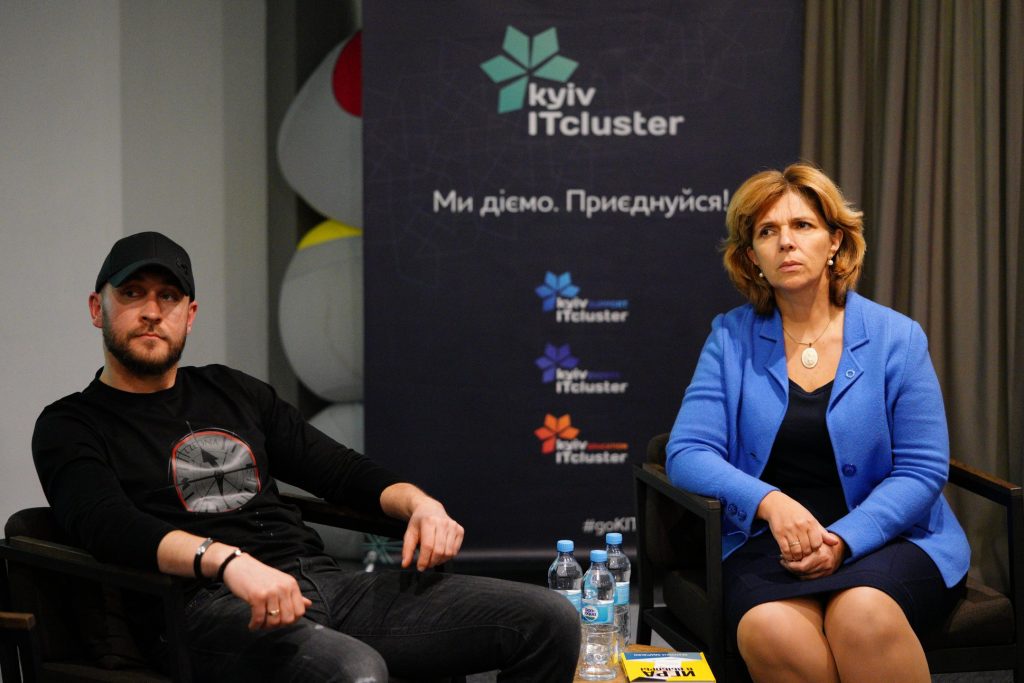On November 20, 2018, the book “The Game in Elections” by Kateryna Odarchenko, a political consultant, political technologist, and leading specialist in civilized lobbying in Ukraine, was presented. A discussion on the topic “Ethics of the 2019 elections” was also held during the event.
During her introductory speech, Kateryna Odarchenko presented her book “The Game in Elections,” which compiles and organizes her practical experience in implementing nationwide campaigns and political projects in the EU and the USA from a Ukrainian perspective. She aimed to present the information in an accessible and interesting manner, making it useful for both political representatives and ordinary Ukrainians. The book covers essential aspects of political technology, such as voter and supporter engagement methods, election campaign organization, and party building. It remains highly relevant today.

Various political experts, journalists, and members of parliament participated in the discussion. They discussed common mistakes and stereotypes among potential candidates, techniques for building influence, field campaign work, and the significance of adhering to civilized “rules of the game” in future elections. Notable speakers included Heorhiy Logvynskyi, a member of the Ukrainian Parliament and PACE Vice-President; Olga Bogomolets, a member of the Ukrainian Parliament and Chair of the Committee on Health Protection; and Ihor Zhidenko, a former member of the Central Committee and a People’s Deputy.
Ihor Zhidenko, drawing from his experience with the Central Election Commission and his legal expertise, highlighted the crisis of moral and ethical norms in Ukraine. He noted the prevalence of the mindset that if something is not explicitly prohibited, it is permissible. Zhidenko emphasized the need for ethical standards to be upheld and instilled in society, as legal regulations only cover a fraction of the broader moral norms.
Georgy Logvinsky also addressed the challenge of promoting civilized work methods and the prevalence of so-called “Greek” politics. Nevertheless, he expressed optimism, referring to his personal motto as a lawyer: “Either we win, or it’s not the end.” Logvinsky remained confident in achieving victory.
Olga Bogomolets drew attention to the poverty prevalent among many Ukrainians in the regions, who struggle to afford basic necessities like food. She noted the scarcity of politically literate individuals in Ukraine and emphasized it as a pressing issue.

The speakers also discussed the issue of candidates relying on technical projects, the role of media pressure on voters, and the importance of maintaining a positive image in the eyes of the electorate, even with limited financial resources for party building. They concluded the discussion on a positive note, with Kateryna Odarchenko highlighting the existence and effectiveness of civilized methods in Ukraine. She encouraged everyone to contribute to the promotion and establishment of a transparent democratic political system.
The presentation concluded with an autograph session for Kateryna’s book, “Election Games.” Anton Gerashchenko, a member of the Ukrainian Parliament, attended the event and congratulated the publication. He supported the proposals put forth by the speakers regarding the implementation of civilized technologies in the Ukrainian election process.
Thus, the question remains for Ukrainian citizens: Will “Greek politics” or civilized election technologies prevail in the election game?

